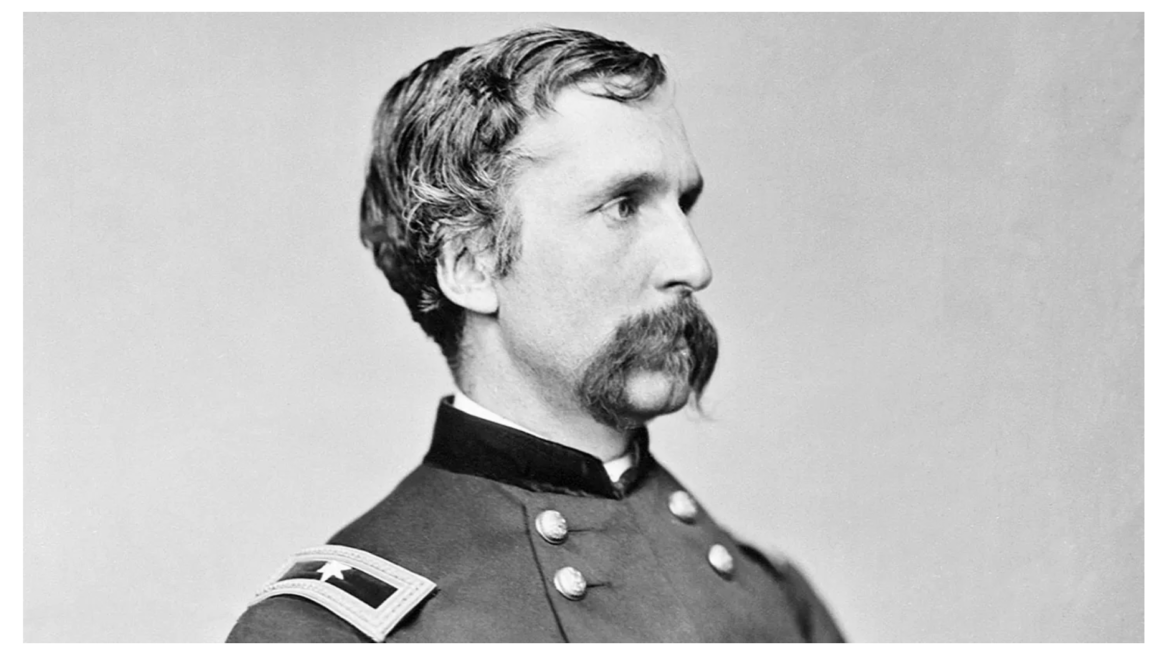Growing up as a child I frequently found myself reading Landmark Books. For those who came of age in the digital vice print age, Landmark was a children’s book series published by Random House from 1950 to 1970 featuring stories of significant people and events in American history written by contemporary popular authors. I was fascinated with the stories of both men and women who by their actions changed the very course of history and without their actions we would not be the country that we are today.
One of my favorites to this day is Joshua Lawrence Chamberlain a college professor teaching rhetoric at Bowdoin College in Maine. Out of a sense of duty and patriotism he voluntarily joined the 20th Maine Volunteer Infantry Regiment. Despite any formal military training he ultimately became a highly respected and decorated Union officer, who reached the rank of Brigadier General. In all, Chamberlain served in twenty battles and numerous skirmishes, was cited for bravery four times, had six horses shot from under him, and was wounded six times. After the war he went home to serve as College President and subsequently the Republican Governor of Maine for four terms.
What makes him legendary is his heroic performance the during the second day’s fighting at Gettysburg on July 2, 1863. Here Chamberlain’s regiment occupied the extreme left of the Union lines at Little Round Top. Chamberlain’s men withstood repeated Confederate assaults by seasoned troops and then when completely out of ammunition and realizing the extreme gravity of the situation he personally repulsed the Confederate advance with a downhill bayonet charge. For this heroic action he was awarded the Medal of Honor the nation’s highest award for bravery under fire.
Had Lee’s Army turned Meade’s flank at Little Round Top it is more than likely the Confederate States of America would have won this decisive battle, sued for peace, and the United States of America would not exist as we know it today.
Not only did Chamberlain demonstrate his character during a war but in peace as well as he was in charge of the Union guard when Robert E Lee surrendered at Appomattox. After the signing of the instrument of surrender, Chamberlain despite the loss of many of his men and close friends in battles had his men render honors to Lee and his defeated troops. This small action alone set a tone of reconciliation that was crucial to restoring the Nation. A lesser commander might have snubbed or degraded them, which would have made healing the wounds of our nation’s most deadly conflict even harder.
It is ironic that Chamberlain died of wartime wounds in 1914 at the age of eighty-five. He was the last Civil War veteran to die as a direct result of wounds from the war and thus he is considered the last casualty of the Civil War.
As the nation is currently in turmoil with our current Commander-in-Chief repeatedly calling one political party a “threat to democracy” and no reconciliation in sight I ask where are the Joshua Chamberlains – men or women who can rise above petty and partisan politics and place the nation above self. It is time for the Joshua Chamberlains of our time to rise above the fray and come to the rescue of our floundering nation.

